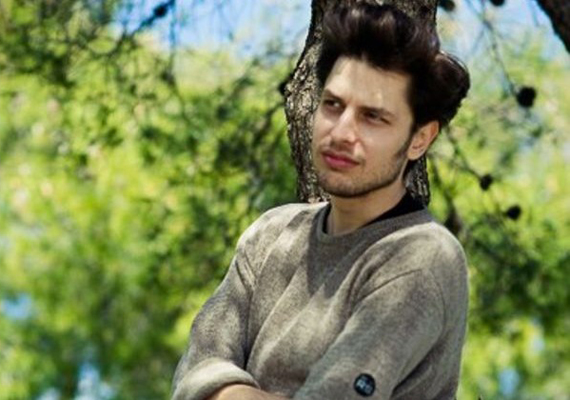Stergios Paschos • Director
"There are many ways to imprison someone you love - like making a film, for instance"
- We chatted to Greek director Stergios Paschos about his latest film, Afterlov, which competed for the Golden Alexander in the Thessaloniki IFF’s International Competition

Stergios Paschos’ Afterlov [+see also:
film review
trailer
interview: Stergios Paschos
film profile], the story of a man so desperate for answers to his ill-fated love story that he locks up his ex-girlfriend in a villa that he’s housesitting in, might not sound light-hearted, but it truly is. A subversive romantic comedy about what happens when an inescapable attraction arises between people who push away and those who run away, Afterlov had its world premiere in a massively successful screening at Locarno, and is now vying for the Golden Alexander in the Thessaloniki International Film Festival’s International Competition.
Cineuropa: Your feature debut was spun off from your very successful 2013 short Elvis is Dead, which is not a very common choice. What were the themes that you felt were pressing enough to revisit?
Stergios Paschos: Thank you for asking that, because there seems to be a misunderstanding on the subject: I mean to say that the two films are indeed related, but not according to the suggested timeframe. Afterlov’s story came first, and then Elvis is Dead was sort of a try-out for the material: the characters, the dialogue style and the chemistry between the actors. The try-out proved to be successful, so I then went on writing Afterlov.
The film was shot in acclaimed director Nikos Nikolaidis’ villa, a cinematic emblem in itself, having been used in iconic 1980s Greek films. One would expect such a location to bleed into any film shot there, imposing its own defining effect; did you find that to be the case?
I guess what you could say happened was that the house infiltrated the film, or better yet, embraced it. I have wonderful memories from that house and was very moved by them for the duration of the shoot. Moreover, Simeon Nikolaidis (Nikos Nikolaidis’ son) and his family, who took us in during that time, made us feel very welcome, and saved us time and again from the hurdles that our small production threw up.
When a director comes out with a romantic dramedy as his debut feature, viewers tend to assume that the story has autobiographical elements, yet your narrative style alludes to Afterlov being more of a statement, a sort of personal, existential view on what romance is, rather than a specific personal romantic experience. Does either of the two apply to your relationship with the story?
I think that when you’re making a film, you’re constantly mindful (or should be) of your relationship with cinema and the way you approach it, and that pervades the film as well. In that way, I feel that when you're living through a love story or a strong friendship, you project onto them what you think a love story or a strong friendship is. So, of course, a lot of Afterlov’s themes are autobiographical, and one of those themes is my view on love and relationships in general. But if you’re asking whether I’ve ever locked a girl inside a house in order to get an answer from her, then no, I’ve never done that. But then again, that’s where the magic of cinema lies: there are many ways to imprison someone you love – like making a film, for instance.
The movie has taken off and enjoyed phenomenal success on the international festival circuit; is that going to be a weight on your shoulders when you set out on your next project, or are you waiting for the Greek public’s verdict when the film comes out in local cinemas?
I started preparing my next work before I’d even finished Afterlov’s post-production, and I think that setting out to make a movie that will ask people to dedicate 90 minutes of their lives to exploring some person’s point of view is a huge responsibility in itself. Therefore, I don’t think there’s any extra weight to be added depending on whether someone liked or will like the film. The only thing that can be added is even more joy thanks to being able to communicate with more people, and a certain leverage in terms of production the next time around… I hope.
Any thoughts on what your next project is actually going to be?
I’m finishing up the script as we speak. It’s an erotic thriller with a lot of dark-humour elements, which revolves around a peculiar love triangle, and it’s going to be called Selini (Moon). Probably.
Did you enjoy reading this article? Please subscribe to our newsletter to receive more stories like this directly in your inbox.
















